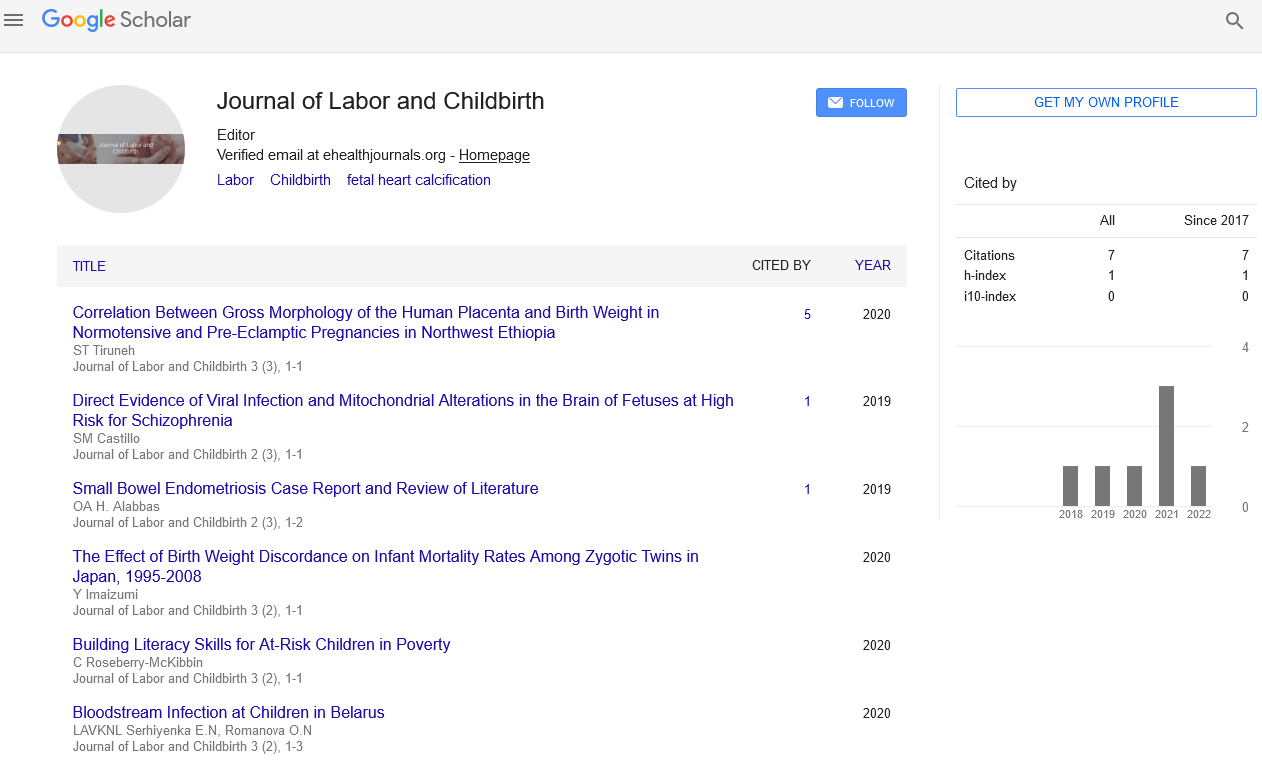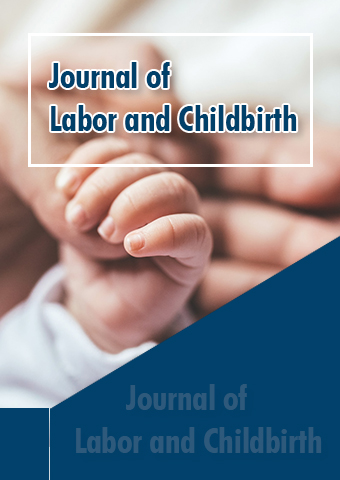Perspective - Journal of Labor and Childbirth (2024) Volume 7, Issue 4
The Essential Role of Midwifery Care in Modern Healthcare
- Corresponding Author:
- Mimi Dent
Department of Gynecology,
Shaaz University,
Toronto,
Canada
E-mail: mimiden@gmail.com
Received: 02-Jul-2024, Manuscript No. jlcb-24-140552; Editor assigned: 05-Jul-2024, PreQC No. jlcb-24-140552 (PQ); Reviewed: 19-Jul-2024, QC No. jlcb-24-140552; Revised: 26-Jul-2024, Manuscript No. jlcb-24-140552 (R); Published: 23-Aug-2024, DOI: 10.37532/ jlcb.2024.7(4).239-240
Introduction
Midwifery care is a critical component of the healthcare system, particularly in the context of maternal and neonatal health. Midwives, as trained healthcare professionals, provide comprehensive care to women during pregnancy, childbirth and the postpartum period. Their role extends beyond the delivery room, encompassing a holistic approach to women’s health that includes prenatal education, emotional support and preventive care. This article explores the importance of midwifery care, its benefits and the challenges faced by midwives in contemporary healthcare.
Description
Historical context of midwifery
The practice of midwifery dates back thousands of years, with evidence of midwives assisting in childbirth found in ancient civilizations such as Egypt, Greece and Rome. Historically, midwives were often the primary caregivers for pregnant women, using traditional knowledge passed down through generations. Their role was not only to assist in childbirth but also to provide support and guidance throughout pregnancy and the postpartum period.
With the advent of modern medicine in the 19th and 20th centuries, the role of midwives began to evolve. The rise of obstetrics as a medical specialty shifted childbirth from home to hospital settings and the medicalization of childbirth reduced the prominence of midwifery. However, the latter part of the 20th century saw a resurgence in the recognition of midwifery as an essential component of maternal healthcare. This shift was driven by a growing appreciation for the holistic, personalized care that midwives offer, as well as evidence supporting the safety and effectiveness of midwifery-led care.
The scope of midwifery care
Midwives provide a wide range of services that extend beyond childbirth. Their care encompasses the following key areas:
Prenatal care: Midwives play a crucial role in prenatal care, which includes regular check-ups, monitoring the health of the mother and fetus and providing education on pregnancy and childbirth. They offer personalized care plans, addressing the physical, emotional and social needs of the expectant mother. Prenatal care provided by midwives often involves comprehensive risk assessments, nutritional counseling and preparation for labor and delivery.
Labor and delivery: During labor and delivery, midwives support and manage the birthing process. They are trained to recognize and respond to complications, ensuring the safety of both mother and baby. Midwives advocate for natural childbirth when possible, employing techniques such as breathing exercises, positioning and pain management strategies that minimize the need for medical interventions. In cases where interventions are necessary, midwives collaborate with obstetricians and other healthcare professionals to provide integrated care.
Postpartum care: The postpartum period is a critical time for both mother and baby. Midwives offer continued support and care during this phase, addressing issues such as breastfeeding, newborn care and maternal mental health. They conduct postnatal visits to monitor recovery, provide family planning advice and support the emotional well-being of new mothers. This comprehensive approach helps to ensure a smooth transition into parenthood and promotes long-term health for both mother and child.
Well-woman care: Beyond pregnancy and childbirth, midwives provide general reproductive health services, including annual exams, contraceptive counseling and management of menopausal symptoms. Their holistic approach emphasizes preventive care and health promotion, encouraging women to take an active role in their health and wellbeing.
Benefits of midwifery care
The benefits of midwifery care are welldocumented and extend across various dimensions of health and well-being. Some of the key benefits include:
Improved birth outcomes: Studies have shown that midwifery care is associated with lower rates of cesarean sections, fewer medical interventions and reduced rates of preterm births and low birth weight babies. The personalized and continuous care provided by midwives contributes to these positive outcomes by addressing risk factors early and promoting healthy behaviors during pregnancy.
Enhanced patient satisfaction: Women who receive midwifery care often report higher levels of satisfaction with their childbirth experience. The emphasis on personalized care, emotional support and respect for individual preferences contributes to a positive birthing experience. Midwives’ focus on informed choice and shared decision-making empowers women to take an active role in their care, leading to greater satisfaction.
Cost-effectiveness: Midwifery care is cost-effective for both families and healthcare systems. By reducing the need for expensive medical interventions and minimizing hospital stays, midwifery care can significantly lower healthcare costs. Additionally, the preventive and health-promoting aspects of midwifery care contribute to long-term cost savings by reducing the incidence of chronic conditions and promoting overall health.
Holistic and personalized care: Midwives provide holistic care that considers the physical, emotional and social aspects of health. This approach ensures that the unique needs of each woman are addressed, fostering a supportive and nurturing environment. The continuity of care provided by midwives, who often build long-term relationships with their patients, enhances the quality of care and promotes better health outcomes.
Conclusion
Midwifery care plays a vital role in promoting maternal and neonatal health, offering a holistic, personalized approach that enhances birth outcomes, patient satisfaction and cost-effectiveness. Despite facing regulatory, educational and workforce challenges, midwives continue to provide invaluable care that addresses the physical, emotional and social needs of women and their families.

